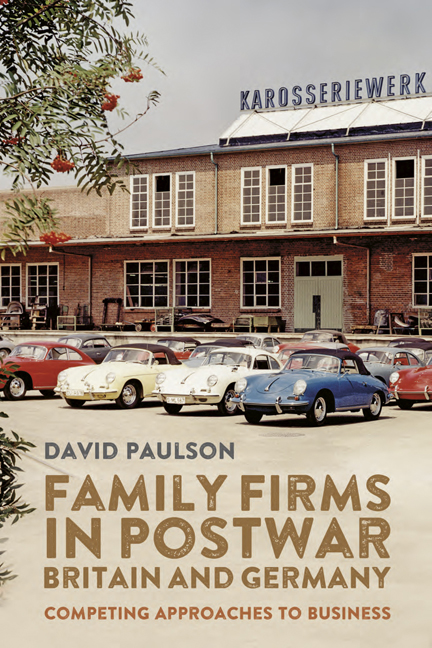7 - Julius Schneider GmbH & Co. KG, Ludwigsburg
Published online by Cambridge University Press: 10 January 2024
Summary
Julius Schneider Stahlbau und Verglasung (Schneider), based first in Stuttgart then in nearby Ludwigsburg, was a designer, producer and installer of steel-framed buildings and glass roofing. It originated in a one-man technical services bureau started by Julius Schneider in Stuttgart in 1902. He recruited Karl Walz, newly graduated from Stuttgart's Königlich Württembergische Baugewerkschule (building trades school), and in 1910 the company was established as Julius Schneider Eisenkonstruktion und Glasdachbau (ironwork and glazed roof manufacture). After difficult conditions during World War One, when Walz served at the front, they established relationships with firms such as Mercedes and Bosch which remained their customers until the 1970s. After setbacks during the difficult economy of the 1920s, Schneider began to focus on steelworks for buildings; ever larger constructions were manufactured and erected, including turbine halls and a steel-rolling mill. Schneider improved and expanded its plant, albeit still using very primitive tools and machinery: the company history recalls the use of tree boughs as levers for lifting steelwork, the carriage of finished products on handcarts, and the use of city trams for deliveries, all of which created a culture of resilience. Having cut staff from one hundred to six during the recession of the early 1930s, the building industry experienced such a sharp upswing under the Hitler regime's industrial policy that the works was soon overwhelmed. In response, the factory expanded, offices and workshops were updated, and the workforce expanded to 120 men.
From 1 January 1937 the single-owner firm (Einzelfirma) became a partnership (offene Handelsgesellschaft) between Julius Schneider and the by-now Senior Engineer (Oberingenieur) Karl Walz. The elevation of the “trusted colleague”, after what was effectively a 28-year apprenticeship, illustrates a preference for expertise and experience over youth and energy in the selection of management, and indeed in some individuals’ decisions to seek management responsibility: Christian Wandel chose to start out on his own only at the age of forty-eight, when he was fully confident in his own experience and ability. Walz became the sole owner in 1943 on Schneider's death. Having worked at a relentless pace, he suffered a complete breakdown in autumn 1944 and needed the support of the company's senior engineer to steer the badly bomb-damaged company through the remaining months of the war.
- Type
- Chapter
- Information
- Family Firms in Postwar Britain and GermanyCompeting Approaches to Business, pp. 169 - 198Publisher: Boydell & BrewerPrint publication year: 2023

